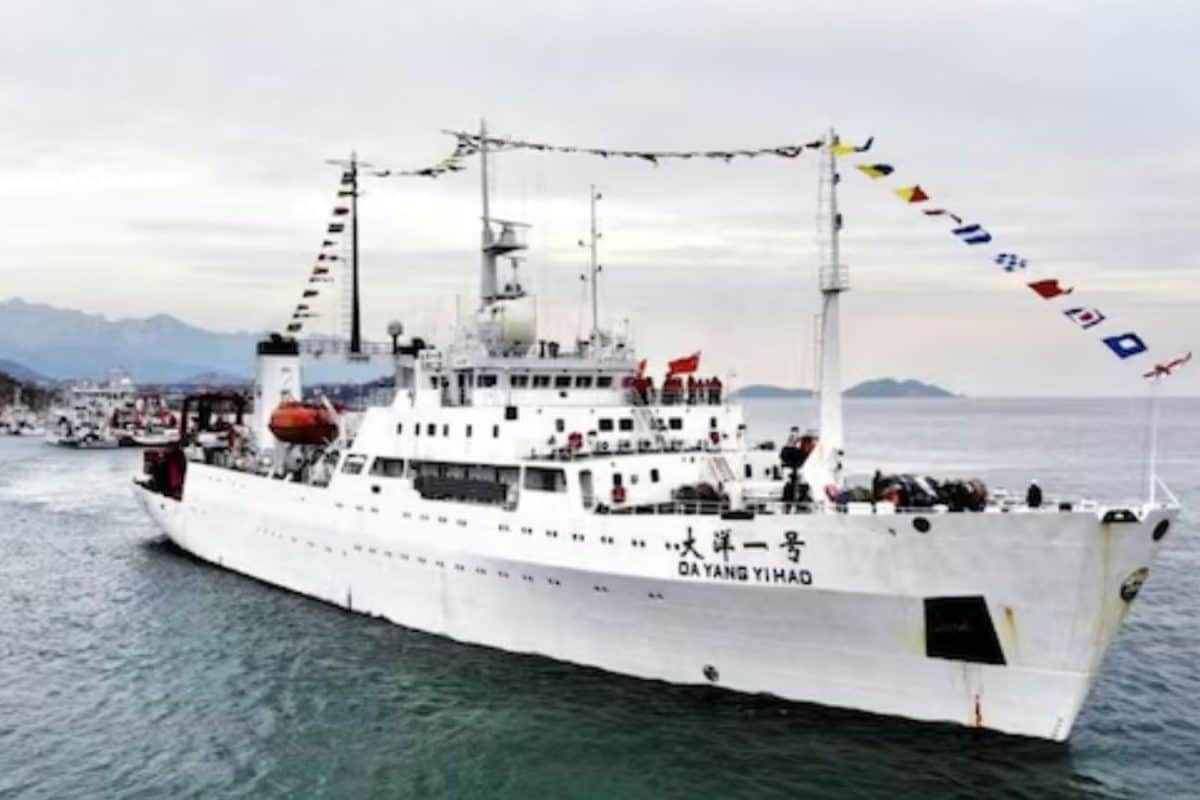

Amid rising tensions in the region, particularly between India and Pakistan following the Pahalgam attack, China's "research vessel" Da Yang Yi Hao has been spotted nearing Indian waters, raising concerns over potential espionage. The ship's presence coincides with heightened tensions and naval activity in the Arabian Sea, specifically Operation Sindoor, adding a layer of complexity to the situation.
Officially designated as a research vessel for scientific expeditions like oceanographic research and marine resource assessments, Da Yang Yi Hao is suspected of having a dual purpose: gathering intelligence. India and other countries are wary of these ships, believing they conduct intelligence operations under the guise of research. These vessels are equipped with sophisticated systems capable of ocean-bottom mapping, missile tracking, and submarine activity detection. Furthermore, they reportedly deploy unmanned underwater vehicles (UUVs) to collect vital military information. These UUVs can gather data on Indian submarines and conduct surveillance, potentially mapping ocean flows and tracking missiles.
The timing of Da Yang Yi Hao's arrival is particularly concerning for India. In March 2025, weeks before India conducted a key flight test of its Agni-5 intercontinental ballistic missile, two Chinese research vessels appeared near Indian shores. Similarly, in 2022, Chinese vessels in the Indian Ocean raised concerns ahead of a planned Indian missile test. These incidents suggest a pattern of China using these ships to monitor Indian military activities.
Da Yang Yi Hao's capabilities could potentially aid Pakistan, China's "all-weather friend," especially in light of recent events. The vessel's advanced sonar sensors can track submarine activity, while its satellite uplinks can monitor low-orbit satellites. This information could be valuable to Pakistan, particularly in understanding Indian naval deployments and capabilities during Operation Sindoor. Moreover, the ship's ability to map the ocean floor and collect data on underwater vehicles could provide Pakistan with crucial insights into Indian submarine operations.
In the past, similar Chinese ships have been caught in illegal activities. In 2021, Da Yang Yi Hao was intercepted for illegal operations in Palau's Exclusive Economic Zone (EEZ), gathering information considered important for submarine warfare. The ship was collecting data in areas such as the Kyushu-Palau Ridge. These incidents highlight the potential for these so-called research vessels to be used for strategic purposes, raising concerns about China's expanding maritime intelligence capabilities in the Indian Ocean region.
India has been closely monitoring the movements of Da Yang Yi Hao. Previously, ships like Xiang Yang Hong 01 have been spotted near India's eastern coast during missile tests. These ships not only track missile launches but also attempt to intercept acoustic signatures of Indian nuclear submarines, especially those stationed near Visakhapatnam. The data collected is then allegedly relayed to Chinese satellites for broader surveillance coverage.
Notably, Sri Lanka had banned Chinese research vessels from its ports for a year, but the ban expired in January 2025 under a new government, allowing ships like Da Yang Yi Hao to move closer to Indian waters. This development has further heightened concerns about China's increasing presence in the Indian Ocean region and its potential implications for regional security.